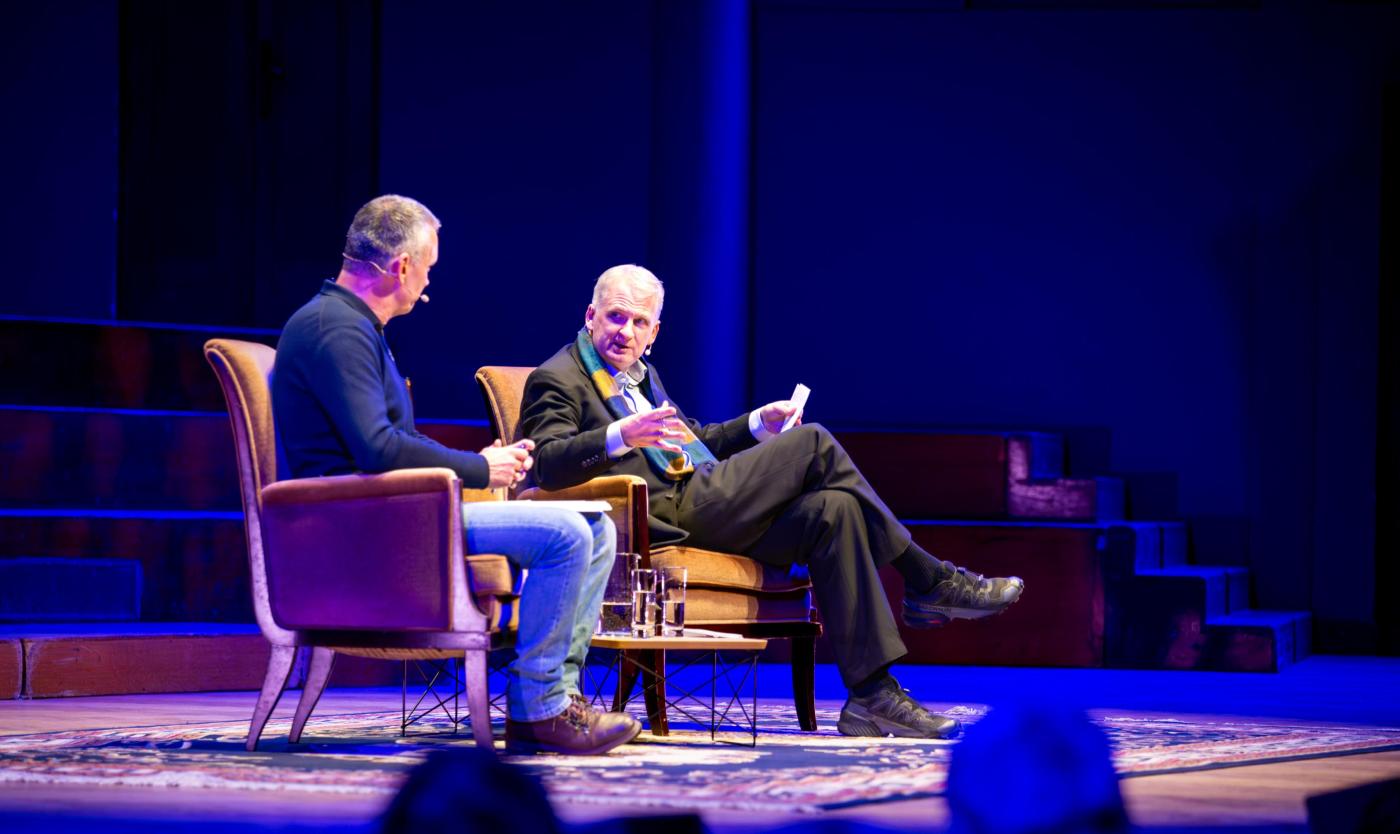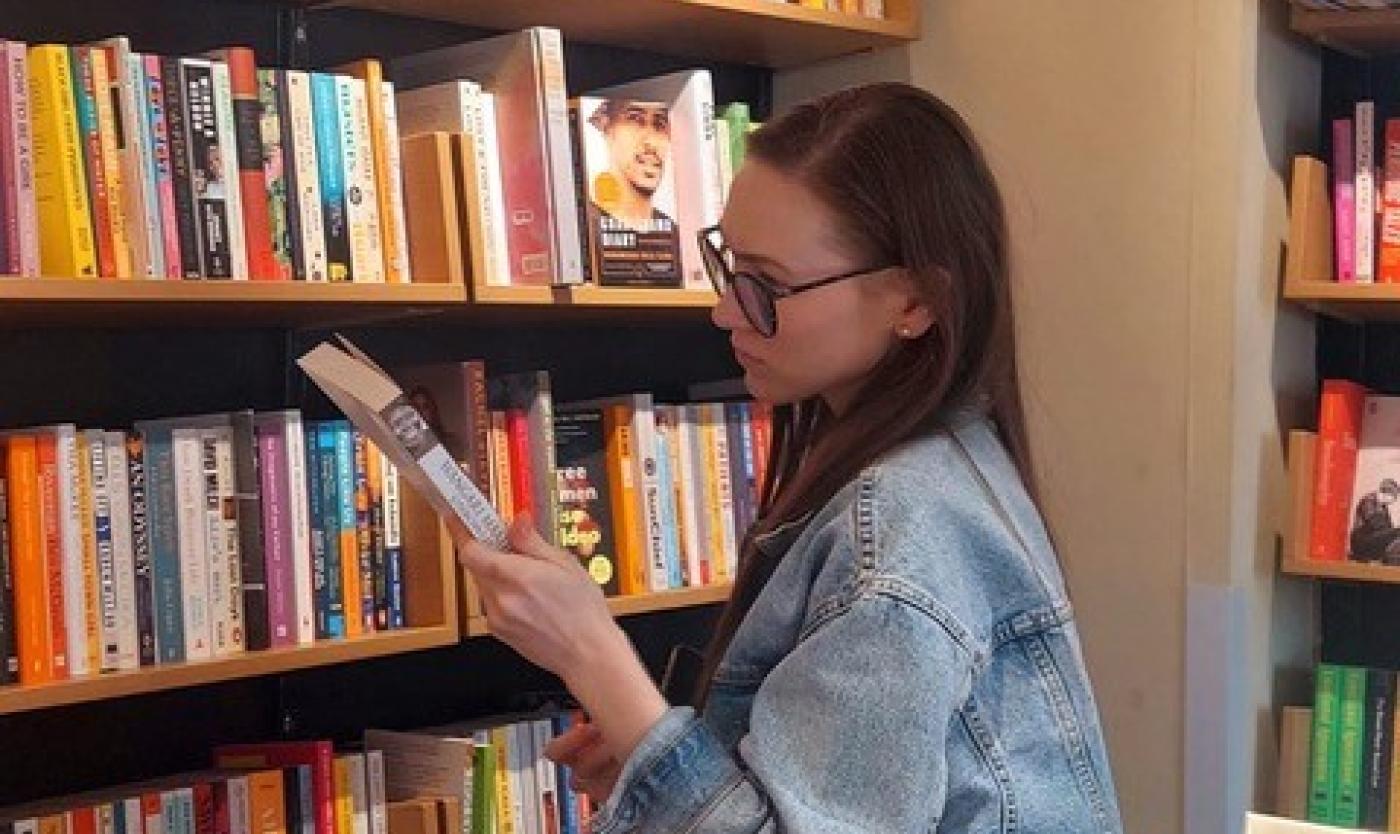The Brussels Centre for Language Studies (BCLS) at VUB welcomes Professor Andreea S Calude to the Lonnoy Chair in Multilingualism this semester. As Associate Professor of linguistics at the University of Waikato in New Zealand, she studies New Zealand English, and the influence of Māori on it as well as language use on social media.
You will be a visiting professor at VUB from September. How would you describe the research chair?
Andreea S Calude: “I will be in Brussels until the end of November, and am of course grateful to the BCLS and VUB for this unique chair, which runs throughout the academic year. I will give a keynote and some workshops, focusing on multilingualism in New Zealand and how speakers of the various languages have influenced each other and still do. I want to explain the sociolinguistic situation in New Zealand, but am curious about the situation here in Belgium too. I also hope to expand my collaboration with the BCLS research centre. In that context, I’ve already worked with Prof Dr Laura Rosseel on externally funded research [awarded by the Royal Society Te Apārangi in New Zealand] and we are supervising two PhD students together, but I would like to facilitate more exchanges between the two universities in the future. In any case, I am very much looking forward to it.”
"A dominant lingua franca like English to adopt words from an endangered language, in this case Māori, is unique"
What are the main issues relating to multilingualism in New Zealand?
“First of all, I want to talk about New Zealand English: how did it originate and how is it different from e.g. British, American or Australian English? What is its history? To what extent did colonisation play a role? And what about Māori, the language of New Zealand’s Indigenous population? For me, it is very important to explain the significance of Māori, which is part of the Austronesian language family and not a European language. I also want to look at the collaborations with major tech partners. For instance, today you can write in Māori on your phone and the language has been officially added to Microsoft Translator, all with the help of AI technology. It’s important to know that Māori was an endangered language for a long time, which makes these collaborations and tools particularly important but also important that its sovereignty remains protected. Also, the fact that there are a lot of Māori loanwords in New Zealand English makes it even more interesting. When I had British friends visiting some time ago, they asked me: ‘How can you read the newspapers here? There’s so much Māori in them that we do not understand!’ The fact that a language has loanwords – just look at Dutch, with loanwords from English, French, German, etc – is normal, but for a dominant lingua franca like English to adopt words from an endangered language, in this case Māori, is unique. Finally, I also want to touch on how New Zealanders themselves feel about their language. For a long time, there was a kind of feeling of inferiority towards British English, which was considered ‘good’ and ‘the standard’. How New Zealanders view Māori loanwords is also revealing. Some are very positive, others are not.”
Do you see similarities between multilingualism in New Zealand and in Belgium?
“I know that Belgium too has a rich language history, which has also caused some controversy. New Zealanders see themselves as bi-cultural: a nation that embraces Māori and English. In practice, it is less straightforward to implement biculturalism and bilingualism. In that respect, not everyone realises how powerful multilingualism is. But I hope that multilingualism will one day become the norm, that it will be the most normal thing in the world for people to learn another language. Today we are still too preoccupied with the economic benefits of a language, so we lose sight of the other wonderful benefits of multilingualism.”
"Most X users used prescriptive Māori grammatical rules and used the language on social media"
How does social media, one of your other areas of expertise, play a role in your research on multilingualism?
“Social media has become indispensable when talking about languages and multilingualism, and is a very instructive source for detecting language evolution. For example, in one recent project we recently investigated how a difficult Māori grammatical construction has been used on X over the past 10 years. Our expectations were low, just because social media doesn’t seem to be the most obvious place for complicated grammatical constructions, but the opposite was true. We saw how most X users used prescriptive Māori grammatical rules and used the language on social media as a means of increasing its prestige and visibility. So it turned out to be not only about language use but also about language activism.”
In a broader perspective, how multilingual is social media? Doesn’t English dominate?
“There is indeed a lot of English online, which leaves little breathing space for other languages. At the same time, social media also provides space – real space – for languages that would otherwise not have a voice. Looking again at the situation in New Zealand, I see that in the past, at the time of initial colonisation, Māori people often lost contact with their local community as well as their language through urban migration to the cities. In recent times, social media can be useful to bridge geographical distances and reconnect people albeit in a virtual space. Overall, we know social media comes with many problems too, and so it is important not to look at it through rose-tinted glasses but to have a healthy dose of pragmatism.”
What is the impact on social media of translation programs and AI?
“It is interesting to put data in the cloud, but it is important to monitor whose data is being used, where it comes from and how and why it is being used. The worst that can happen is for tech giants to start managing that data to create AI models, taking control away from the speakers of the language in the first place. If we look specifically at translation models, there is a chance that a distance will be created between the native speaker and their language. We absolutely must prevent that. A concrete positive example: today there are Māori tools that aim to provide some automated transaltion. If you use e.g. Google Translate to translate a Dutch word into a Māori word, you will find after the quality is not the best, because the program is not maintained by native speakers.”
"Who knows, maybe more Māori words can spread even further, both in Belgium and worldwide"
What else can social media tell us about a language?
“Unesco recently did a study on the health of a language, proposing a number of different parameters. One of them involves the use of new media, which includes social media, as a sign that the language in question is keeping up with the times. The fact that a language has tags and online dictionaries is also a valid barometer of its vitality. It’s not just about how many net speakers a language has, but also its presence in various spheres of life. Personally, I also find social media a good way to learn a language, to get a feel for it, to get in touch with a particular community using the language in question and to understand the humour in a country or language area.”
What about the specific language used on social media, like abbreviations and phonetic forms?
“I was recently interview in a TV programme in New Zealand and was asked to I discuss the latest new words in the Cambridge dictionary. What kinds of new words do we find added? Most of them have a link to the internet or social media. It makes sense, because the online world never sleeps. Someone is always reading or posting something, so even in the future I see more online words becoming part of everyday language. Take the acronym IYKYK (if you know, you know). It is a slang expression used on social media by young speaker and means the information can be understood exclusively by those who are part of the group (the ingroup), and not by others (the outsiders).”
When will you consider that the chair has been a success?
“If we manage to create a meaningful partnership between our institutions and forge opportunities to welcome Belgian students to New Zealand and vice versa. And who knows, maybe more Māori words can spread even further, both in Belgium and worldwide. ‘Haka’ and ‘kiwi’ are known, but Māori has a much richer vocabulary than that.”
Bio Andreea S. Calude
Andreea S Calude is associate professor of linguistics at the University of Waikato in New Zealand. Her research area is New Zealand English and the influence on it of Māori. She is also an expert on language use on social media and its evolution. She has written several books and is a sought-after columnist in newspapers and on TV in New Zealand.
www.calude.net - Twitter(X) @DrAndreeaCalude - Instagram @DrAndreeaCalude

